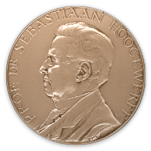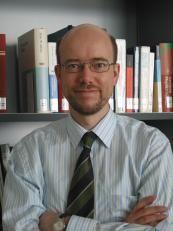Prof. Dr.-Ing. Kai Sundmacher verzorgt de Hoogewerff Lezing 2013
De Hoogewerff Lezing 2013 wordt dit jaar gegeven door Prof. Dr.-Ing. Kai Sundmacher als slotlezing tijdens het 9e European Congress of Chemical Engineering (ECCE9) op donderdag 25 april 2013. Dit congres, dat dit jaar het thema ‘Shaping a Sustainable Future!’ heeft, wordt van 21 tot 25 april gehouden in Den Haag. De titel van zijn lezing is: Molecular Structures, Matter Elements, Thermodynamic Routes, Process Networks: Some Elements of the Future Toolbox for Chemical Process Design.
Het bestuur van de Stichting Hoogewerff-Fonds heeft in 2006 de jaarlijkse Hoogewerff Lezing ingesteld. De Hoogewerff Lezing wordt gehouden door een prominente kandidaat die landelijke aandacht weet te trekken en die een inspirerende lezing kan verzorgen over een algemeen onderwerp dat raakt aan de procestechnologie, zoals over energiebeleid, duurzaamheid, rol van biomassa en vergelijkbare thema’s. De Hoogewerff Lezing vormt een vast onderdeel van het jaarlijkse Nederlandse Procestechnologie Symposium (NPS). Dit jaar is dit symposium ingebed in het ECCE9 congres.
Prof. Dr.-Ing Kai Sundmacher is Director and Scientific Member of MPI Magdeburg, Full Professor for Process Systems Engineering at the Otto-von-Guericke University Magdeburg. See a brief biography for more information.
Summary of the Lecture
In the last 50 years, Chemical Engineering has developed the “unit operations” concept and has applied it successfully to the design of many chemical production processes. Since the 1980s, new ideas for further process improvements have been created which are summarized under the term “process intensification”. But, for being able to contribute to the solution of the upcoming extremely challenging problems that our society is awaiting in the coming decades, the discipline Chemical Engineering has to establish a new conceptual framework and new toolboxes containing powerful “screw drivers” for designing highly efficient and sustainable breakthrough technologies. Instead of building processes from existing libraries of materials and devices, chemical engineers have to solve the design task as a multiscale decision procedure, under consideration of all degrees of freedom available at the different process levels.

